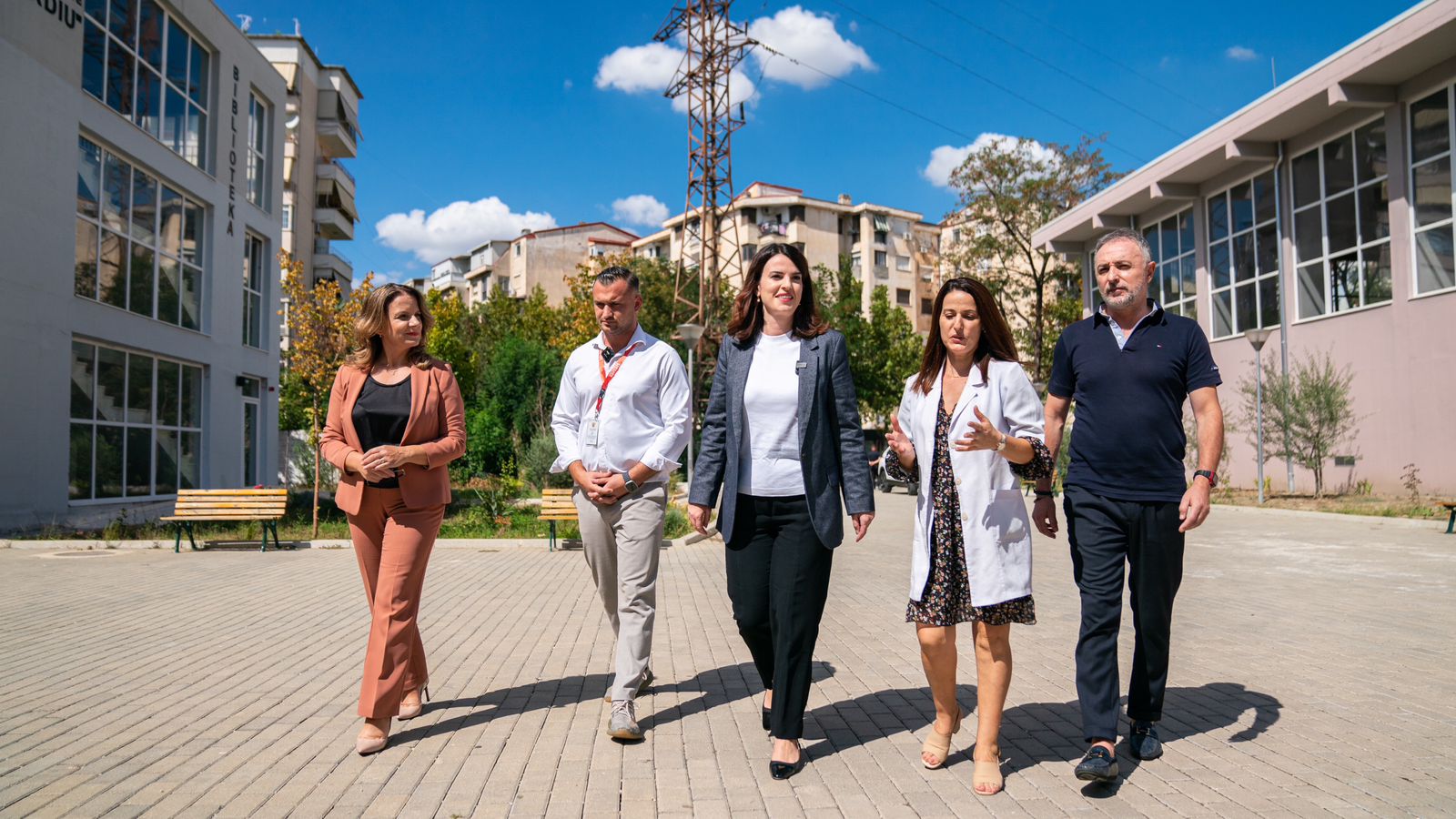Smart labs extend their map into schools for a better digital education for children
Two years ago, investments in school infrastructure were further enhanced with the introduction of new smart laboratories. This year, their digital map has expanded to 216 labs, which, along with the new information technology curriculum, will enable 35,000 primary school children to acquire digital and programming skills tailored to their age.
At the “Vaçe Zela” middle school in the capital, where one of the smart labs has been installed this year, Prime Minister Edi Rama and the Minister of Education and Sports, Ogerta Manastirliu, visited to observe the innovative model demonstrated by the children. The space, different from typical classrooms, encourages young students to express their creativity.
“In ‘Vaçe Zela’ school, a SmartLab has been installed, part of the entire SmartLab network implemented through the Element IT program. The Albanian government is now working hard to enhance students’ digital skills, starting from the first grade. A total of 216 SmartLabs have been installed through the efforts of the National Agency for Information Technology in collaboration with the Ministry of Education and Sports. This network of smart labs in schools, combined with the new information technology curriculum, ensures that 35,000 children in grades 1 to 3 can develop digital and programming skills through the “CodeMonkey” program. This investment includes not only hardware and the computer network but also full furnishings and relevant setups,” explained Minister Manastirliu.
As the children demonstrated their skills using “CodeMonkey,” Minister Manastirliu emphasized that the labs are designed to be very different spaces than typical classrooms.
“We have worked to ensure that Smart Labs are environments where children can express their creativity, offering them spaces that are different from standard classrooms. The 216 labs installed in 200 schools will follow this model, with appropriate arrangements, including the placement of desks and the overall environment,” said Minister Manastirliu. In order to track children’s advancement in digital abilities, we are collaborating with the National Technology Agency on an innovative project wherein the programming and program accomplishments of young students will be directly linked to the pre-university education information system.” – stated Minister Mastirliu.
Mirlinda Karçanaj, the Director of the National Information Society Agency, stated that 654 new labs will be fully operational by 2026, completing the digital map for all middle schools as well as high schools.
Prime Minister Rama praised the work done in setting up these laboratories while emphasizing that the advancement of technology should not overshadow the development of other essential qualities in children, such as handwriting and outdoor work. “These should continue, but at the same time, we must not forget about good handwriting and school farms,” he said.



